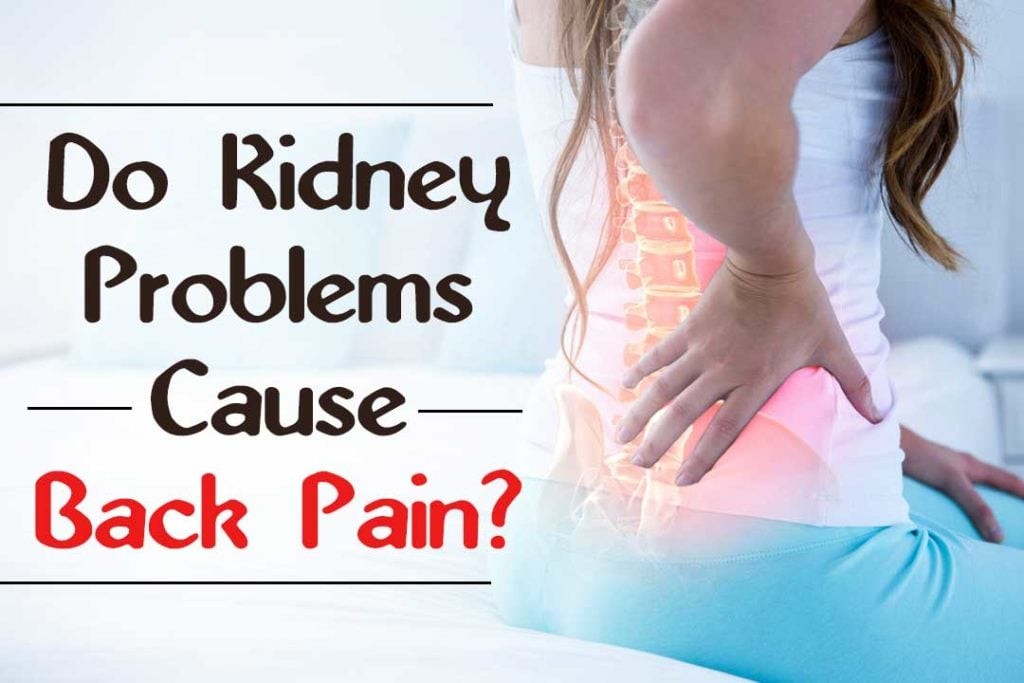
Contents
Kidney Pain vs. Back Pain
Kidney pain is discomfort (acute or chronic), aches, or sharp pain that occurs in the back between the lowest rib and the buttock.
Pain can occur anywhere in the back, from the neck down to the tailbone, originating from the spine’s structures, including:
- vertebrae (bones of the spine)
- discs between the bones
- nerves that exit the back
- muscles and ligaments that support the back
Pain can also radiate to the back, such as with pancreatitis, peptic ulcer disease, cholecystitis, an abdominal aortic aneurysm, or kidney inflammation.
What is kidney pain?
Kidney pain is a specific type of back pain that originates from the kidney and causes symptoms in the flank. The flank is a rectangular area in the back from the lower rib cage to the pelvis’s top bone and the lateral part of the body.
Causes and Risk Factors of Kidney Pain and Back Pain
Back Pain Causes and Risk Factors
Back pain has numerous causes, depending on the involved structure. Pain and inflammation of the back muscles and ligaments from acute injury or chronic overuse can cause significant pain.
Osteoporosis and decreased bone density can cause spontaneous compression fractures of the spine’s vertebrae. Fractures may also occur due to trauma.
The spinal nerves can become irritated from ruptured discs, arthritis, and narrowing of spaces between vertebral bodies. Sciatica is an example, causing pain in the back that may radiate down the leg.
Tumors can affect back structures, both benign and malignant, primary or metastatic from other parts of the body.
All back structures have the potential to become infected and cause pain, such as shingles, osteomyelitis, and discitis.
Kidney Pain Causes and Risk Factors
Inflammation of the kidney causes kidney pain, often due to kidney infection, bleeding, or obstruction.
Kidney infection, or pyelonephritis, can result from a bladder infection or bloodstream infection.
Bleeding in or around the kidney may occur from injury or anticoagulation medication. Kidney tumors can also cause bleeding.
Kidney pain from obstruction is often due to kidney stones, blood clots, or tumors preventing urine drainage. This causes swelling and inflammation, leading to pain and potential kidney damage.
Symptoms of Kidney Pain vs. Back Pain
Back Pain Symptoms
Mechanical back pain from muscles, ligaments, or bone usually arises gradually and is localized to the affected area.
Pain from nerve inflammation follows the nerve’s path, causing numbness, tingling, and muscle weakness.
Shingles can attack any nerve, associated with a blistering rash.
Infection-related back pain may have fever.
Kidney Pain Symptoms
Pain from the kidney usually has other associated symptoms, including nausea and vomiting.
- Infection-related pain is constant with fever, chills, cloudy urine, and other urinary symptoms.
- Kidney stone pain is colicky, intense, and may involve bloody urine.
- Bleeding in or around the kidney causes bloody urine. Kidney tumors can also result in blood in the urine.
Diagnosis of Kidney Pain vs. Back Pain
Talking to and examining the patient helps determine the cause of the pain.
Urine analysis and culture help assess kidney involvement.
For kidney stones, imaging the kidneys may be appropriate.
Evaluating kidney function is important in kidney pain cases.
Imaging the back may be necessary for back pain due to structural issues.
Treatments for Kidney Pain and Back Pain
Treatment depends on the specific cause of back pain.
Rest, ice, stretching, and muscle strengthening may help with back strains.
Kidney stone pain often requires emergency department care for pain control.
Some symptoms require immediate medical attention.
- Symptoms of urinary tract infection, associated with back pain, should be evaluated.
- Symptoms of back pain associated with nausea, vomiting, abdominal pain, blood in urine, muscle weakness, difficulty urinating, loss of bowel control require prompt medical care.
Prognosis for Kidney Pain and Back Pain
The prognosis depends on the pain’s cause.
By clicking Submit, I agree to the MedicineNet’s Terms & Conditions & Privacy Policy and understand that I may opt out of MedicineNet’s subscriptions at any time.
Hartvigsen, J., M.J. Hancock, et al. "What low back pain is and why we have to pay attention." Lancet 391.10137 (2018): 2356-2367.
Johnson, J.R., and T.A. Russo. "Acute Pyelonephritis in Adults." N Engl J Med 378.1 (2018): 48-59.


